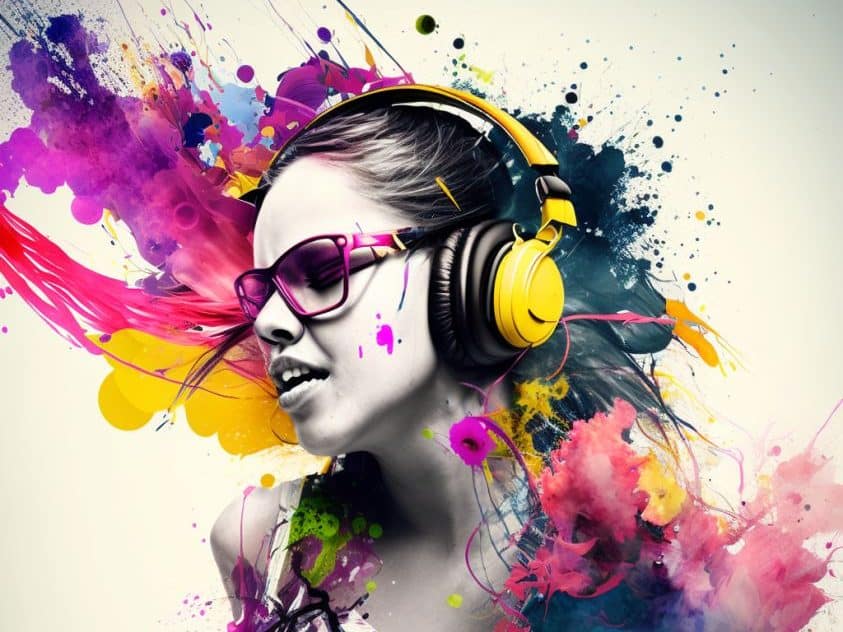Universal Music Group is ready to combat AI technologies that generate unsettling musical content.
In Brief
Faced with the rise of AI-generated tracks mimicking popular artists, Universal Music Group (UMG) is taking action against these technologies that exploit copyrighted music for creating new, unsettling songs.
UMG is actively issuing takedown notices to various streaming services, pushing them to prevent AI developers from gaining access to their music libraries.
Universal Music Group (UMG) is fighting an unexpected battle In response to the influx of AI-generated tracks resembling the work of well-known musicians, UMG is stepping in to uphold the intellectual property rights of its talent. This massive entity, which has a significant share of the global music industry, is sending out takedown requests to major platforms like Spotify and Apple, urging them to restrict AI developers from their private music catalogs.

For some time now, platforms have surfaced that allow users to generate songs in the style of their favorite musicians using AI technology. This generative AI can effortlessly blend lyrics, vocal styles, and thematic elements from various artists, raising potential concerns over copyright violations. Notable examples include the YouTube channel 'PluggingAI', which enables users to create tracks in the style of artists like Drake. drayk.it While AI innovations provide consumers with diverse musical experiences, they also raise serious issues regarding copyright infringement. The Google-based 'MusicLM' AI tool generates tunes from textual cues, but it has yet to be released due to fears of infringing on existing creative rights. A study indicates that approximately 1% of the music produced by MusicLM closely mirrors copyrighted material.
To safeguard their intellectual property, UMG is actively sending out takedown requests to various streaming platforms and urging them to restrict AI developers from their catalogs. UMG is also advocating for strict adherence to copyright regulations, calling for the prohibition of AI-generated music. By pursuing these initiatives, UMG aims to convey a strong message to the music industry regarding the unacceptability of AI-generated compositions and the necessity to respect and uphold creative rights.
The Recording Industry Association of America (RIAA)
last autumn, publicly condemned the use of copyrighted material to train AI algorithms as acts of piracy. launched a similar initiative The rapid advancement of generative AI technology necessitates that the music industry remains vigilant in defending intellectual property rights. That's why UMG's firm stance against these technologies is crucial.
This model for crafting high-fidelity music from textual descriptions demonstrates a significant leap in the field, trained on an extensive collection of musical scores with the capability to produce tracks spanning various genres like classical, jazz, and rock. It has the potential to generate compositions lasting up to five minutes, which is a remarkable breakthrough. AI-created music that infringes on copyright.
- In January, Google introduced MusicLM In the United States, the Copyright Office emphasizes that images created by current generative AI models do not qualify for copyright protection. They highlight the significance of human creativity in determining copyright eligibility, evaluating whether the AI's input represents merely 'mechanical reproduction' or reflects genuine creative expression from the author. AI-generated music Training AI and the Water Crisis: Uncovering the Unexpected Link Between ChatGPT and Water Usage.
- The US Copyright Office (USCO) has stated Researchers from the University of California have developed the Machiavelli Benchmark to assess the competency and potential hazards posed by AI models.
Read more about AI:
Disclaimer
In line with the Trust Project guidelines Blum celebrates the one-year anniversary of its ‘Best GameFi App’ and ‘Best Trading App’ awards at the Blockchain Forum 2025.







